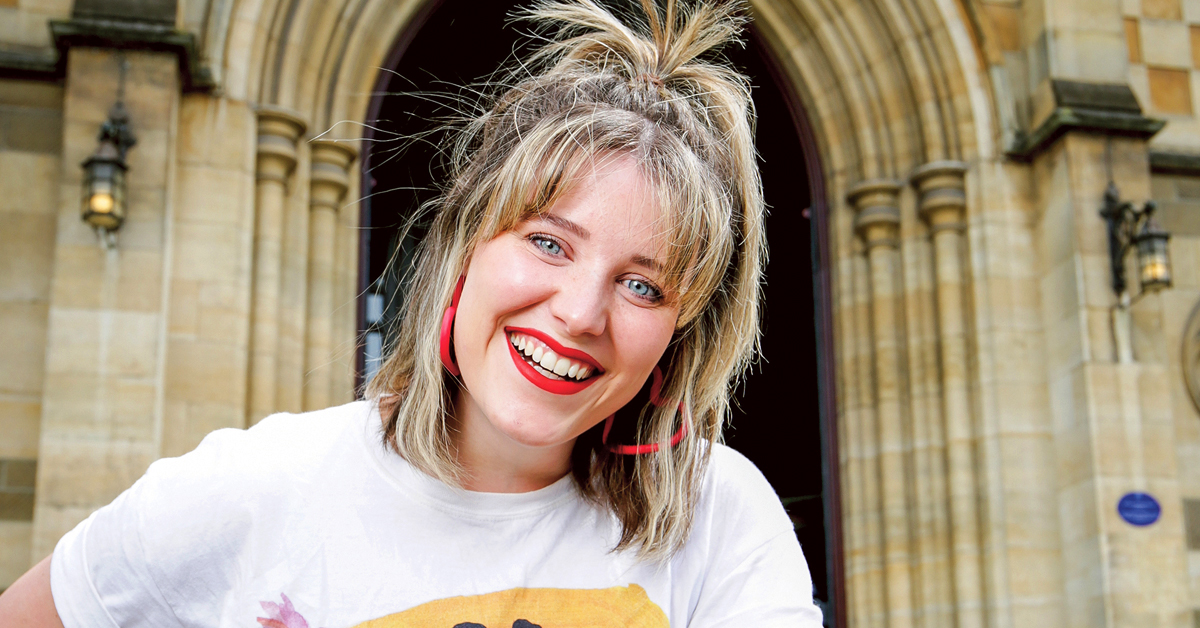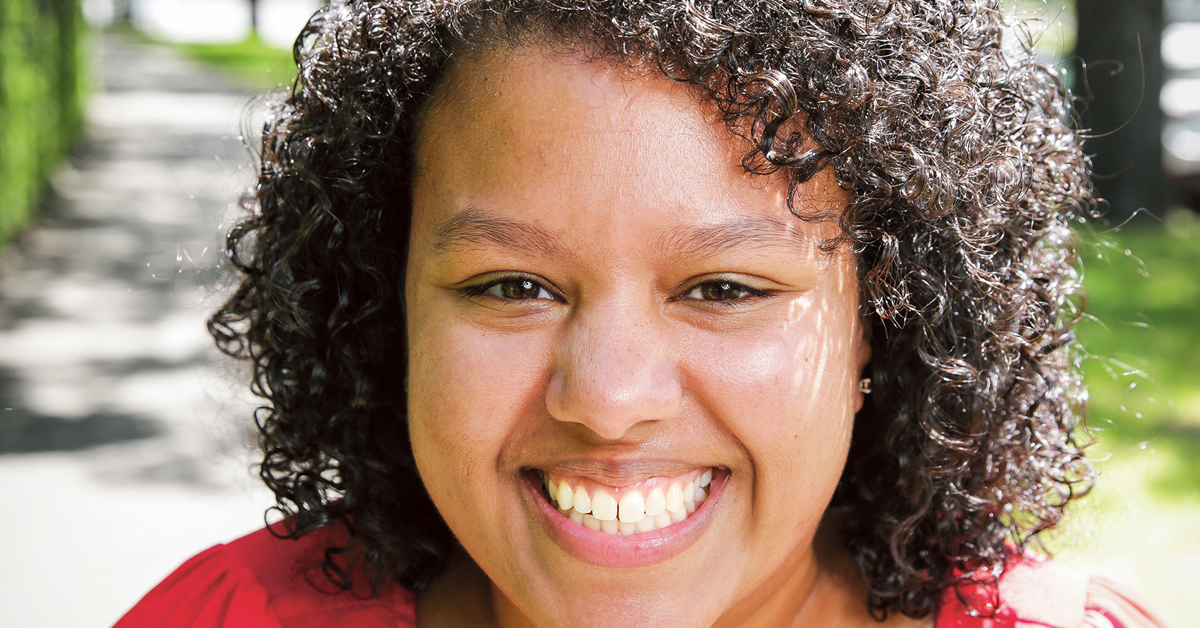Being a young person of faith means you won’t win too many popularity contests, particularly among your peers. But that’s no reason to retreat.
By Stephen Acott
Social media was invented with the best of intentions, a means to connect people and help them better communicate. And, on that score, it’s been an overwhelming success.
Post something, anything, online and you’ll get a response – almost instantly. However, not all of those responses will be agreeable because, more often than not, it isn’t cool to be kind.
Furthermore, some of those responses will be from people you’ve never met, people who are protected by a veil of anonymity
In these instances social media can resemble a warzone where, if you poke your head up, you might lose it. So it’s little wonder that some people feel it’s safer to lay low and keep their thoughts to themselves – especially if those thoughts aren’t in line with the mob mentality.
Welcome to the world of Generations Y and Z (people aged up to 38), who have more or less grown up with social media and all its virtues and viciousness.
Social media has had another side-effect too, one which is less obvious until you stop and think about it. It has leapt out of cyberspace and entered our everyday, physical, universe. That is, people now see no problem telling you what they think – and not just from behind a keyboard. They’re more than willing to stare you down and say it to your face.
“You wanna know what I think?” has become a rhetorical question, the start of a sentence. Needless to say, you know where you stand nowadays.
Where once we were told to keep our opinions to ourselves, now you’re not alone if you have strong views and feel entitled to express them. Look before you leap? Not any more. Discretion is the better part of valour? Not always.
Young people today have to choose their words (and topics) carefully if they don’t want to risk a backlash. Social media has taught them that, not their parents.
One topic that’s guaranteed to solicit a robust response is religion. Science, cynicism and the six o’clock news have hijacked the conversation to such a degree that Christianity and all its collective institutions are an easy target.
But those stories and attitudes don’t define our church. What does are its people, its congregations and its common sense of community. However, for young people on the frontline of faith, there is little strength in numbers.
Recent research reveals the average age of a Uniting Church member is 64 years. People aged 15-29 make up just 7 per cent of congregations. These statistics are cause to reflect on at least two points: why are there so few young people attending church and what should the church do to attract more of them?
There’s also a third point: what’s it like being a Generation X or Y person of faith? Is it isolating? Empowering? Somewhere in between? We spoke with five young Uniting Church members who have all run into similar obstacles, be it ignorance or prejudice, or sometimes both. What’s inspiring is the fact none of it has diminished their faith – if anything it has reinforced it.
Emily Whillance is a radiation therapist. She’s into science, but also the gospel, and the two aren’t mutually exclusive, thank you very much.

Emily Whillance says “people hear that the Bible contradicts itself, that you have to choose between religion and science. They don’t see the intricate details woven into the pages, the love story written to humanity by God.”
“At times it can certainly be isolating being one of only a few people of faith in your age group,” the 25-year-old says.
“You learn to surround yourself with accepting people who have similar values, even if they aren’t faith-based.
“In this day and age where evidence is needed for basically everything the main question I get is ‘how can you believe in something you can’t see or don’t have unequivocal proof of?’. This is probably because I come from a science background and work in the medical field.
“People hear that the Bible contradicts itself, that you have to choose between religion and science. They don’t see the intricate details woven into the pages, the love story written to humanity by God.”
Emma Gordon, 27, says she has always been open about her faith and the strength of her core beliefs.
“I have never shied away from it being a part of my life. If you hold a faith in God, God is bigger than other people’s opinions,” she says.
“I find it life-affirming to hear different opinions and to engage. It just embeds your own thinking. Don’t fear the opposite of your opinion. Sometimes people will hold opinions for reasons that don’t have much credibility, so don’t put too much weight on the other side.”
James Harry was raised in a religious household (his father, Mat, is a Uniting Church minister) and is studying science. Like Emma, he believes ignorance is at the core of many questions he is asked.
“Some people can be quite negative towards you just because of your beliefs,” the 18-year-old says.
“You just have to be aware that not everyone is going to agree with you and accept your beliefs.
“The most common question I get is ‘are you Christian or are you Catholic?’ As soon as someone says that I realise they don’t know much about Christianity.”

“You have to try to get to a point where you’re strong enough to believe what you believe and be strong enough to talk about what you believe and not let anyone push you down,” says Abigail Trewartha
Abigail Trewartha, 25, has a Christian cross tattooed into her left arm, an image that can be a great conversation-starter.
“People see it and they ask, ‘what does that mean’? I reply, ‘oh, well let me tell you …’,” the communication student says.
“If you can explain that your faith comes from a place of love and acceptance, then people are far more likely to listen to what you have to say, especially when you start talking to them like humans, rather than lecturing them.”
Samantha Humbert, 28, has surrounded herself with friends who are open to discussing religion in all its forms.
“I have friends who are Muslim, Catholic and atheists,” she says.
“I am very lucky. My friends are open to discussion. They aren’t very judgmental and they don’t force their beliefs on me.
“You have to try to get to a point where you’re strong enough to believe what you believe and be strong enough to talk about what you believe and not let anyone push you down.
“Just be open, be you.”
Listening to this group should give the church confidence its future is in good hands. The problem it faces, though, is how to attract and engage more young people because the average age of its members is increasing.
In 2001, the median age of people regularly attending UCA services was 59. In 2006 it was 61 and in 2016 it was 64.
And the most recent survey of UCA members shows people aged 15-49 make up 20.5 per cent of congregations, with the other 79.5 per cent aged 50-plus. That’s not a good growth chart.
None of this is news to the church, however. For many years now the Synod has employed three people in the field of intergenerational ministry.
Nigel Hanscamp, who is the Synod’s director of Priorities, Focus and Advocacy, says he’s seen the “mathematics”, but isn’t discouraged by the numbers.
“If you have a group of Christians who are gathering together as a church, and if you are not adding to that group, then it has a limited timespan,” he says.
“So we need to be confident in being alongside people and inviting them to experience the good news for themselves.”
When asked if the church was doing enough, he replied: “I don’t think we’re ever doing enough, but the question should be ‘are we doing the right thing?’.
“The right thing from my perspective as a minister has always been about building relationships.
“One of the things that really grates on me is when a congregation says ‘we’re not getting enough young people in’ – they are always looking outwards to young people who are not there and backwards to who they used to have, but they’re not looking to the young kids and families they have among them.
“Engage with them around their faith story and tell them yours. That is a starting point. Young people, young adults, children teach us about our faith. To honour that is a really important part who we are as church.”
This is a view shared by Mat Harry, James’s father.
“The experiences of young people need to be shared and told to the whole church because the context that younger people find themselves in is very different to the context in which Christians grew up with if they were growing up in the 70s or the 80s, for example,” he says.
“Traditionally, the church hasn’t been very good at allowing younger people to offer leadership, but it is crucial that they do because the changes that occur in society are so rapid.
“The approach used to be build a church, provide a minister and open the doors and people would come. For the last generation or so that has not been the case so we need to develop new strategies of sharing our faith and inviting other new people to explore Christian faith with us.”
And how should the Church go about this?
“To have young people involved you actually have to have other young people there, because it is within peer networks that people will find their social connectedness,” Mat says.
The tricky part is getting young people through the church’s doors. Maybe the best thing to do is to ask them what they think would help. After all, as we said at the start, young people aren’t without an opinion these days.
James Harry gets straight to the point: “The Uniting Church needs to take a completely different stance on how it interacts with young people, especially teenagers, who are really disengaged from it.”
Emily agrees with Nigel in that the answer lies in focusing on the young people the church has, not those it doesn’t. A kind of birds-of-a-feather approach.
“The church should try to connect with the young people they already have and bring them together,” she says.
“If you feel like you’re part of a cohort, it inadvertently grows the church because people grow in confidence to invite friends or to come back. It’s just easier to build that connection. How you go about creating those networks, is hard. I think a lot of it is relational, getting to know people on the ground.”
Emily thinks the church is approaching the problem from the wrong angle.
“There is often a lot of talk about what areas need young people’s input rather than working out what our young people are good at or interested in and being guided by their talents,” she says.
“Sometimes it’s as simple as a conversation that starts with something like ‘I’ve noticed you are very good at/enjoy such-and-such, I think with these skills you might be able to help us with this activity’.
“Relationships and feeling valued are really important while you are learning to find your place in the church community and world around you.”
Emily also believes the church should play to its strengths. She says many of the social justice issues the church is concerned about are shared by young people.
“A lot of young people are invested in social justice and this is an area the UCA excels at and can use to connect with young people,” she says. “Speaking about these issues can start to break down barriers and opens up a dialogue.”
Emma believes attracting young people through the doors may be as simple as changing the times those doors open.
“There are some structural things that impede youth-church engagement,” she says.
“It sounds basic but putting your service time at 9am or 10am on a Sunday morning is just not easy for a lot of young people because they have work or social commitments.
“That’s an easy thing to change. But, overall, it’s not a ‘let’s do this new program’ kind of thing.”
Another easy thing to change, according to Sam, James and Abigail, is for the church to face the music, so to speak. Band together. Be on song.
Sam: “Playing live music is an amazing way to engage young people. There’s a lot of great talent out there. I think ‘why wouldn’t you like going to church if you loved playing music?’.”
James: “One of the things I really enjoy is being part of the music team. It’s a good mix of my personal hobbies and worship. Performing music is definitely something a lot of churches should offer to young people. It really makes us feel valued and included and lets us offer our talents during worship.”
Abigail: “My church has quite a small congregation so it doesn’t have the drawcard of loud music and that sort of show that other churches put on.”
And then there’s social media. Yes, we’re back to where we started. Social media is so pervasive that it can’t be ignored. In this case it is the problem and, possibly, solution. It’s just that not everyone can agree on the strategy.
One thing Mat Harry is adamant about though is the church should hand over its social media keys to its younger audience.
“The church needs to have a greater presence on social media and develop strategies to engage with younger audiences,” he says.
“We need to make space for the younger people to offer leadership on this issue. There is such a massive generation gap now. I can’t understand what my own kids are talking about, and the ways in which they use social media and the internet.
“So, for us as a church to be involved in this process, we must allow the young people to teach us and show us the way.”
Social media is ever changing, however. Or should that be ever expanding? It used to be much simpler: put it on Facebook and your job was done. Then Twitter was born. Then Instagram. YouTube.
Snapchat. And who knows what else. Pinterest? Tumblr? Where does it end?
One thing is for certain, however, a one-size-fits-all approach no longer works. And what platform you should use depends on who you ask.
Sam says the church should be on all platforms: “The more platforms you can cover, the more outreach you can do.”
James says Facebook has past its use-by date: “Facebook is not something that most of my friends would use on a regular basis.”
Emma issues a social media warning: “There is a benefit in building these connections and some of that will happen in the online world, but I worry about churches forcing it in that department because it can all become a bit unnatural.”
So, where does that leave us? Probably where we started – in a state of social anxiety.






